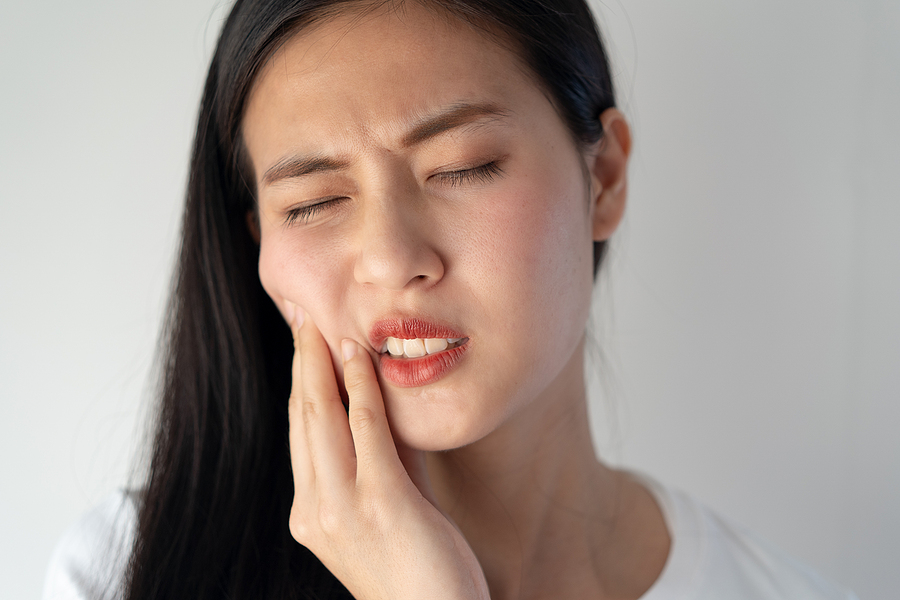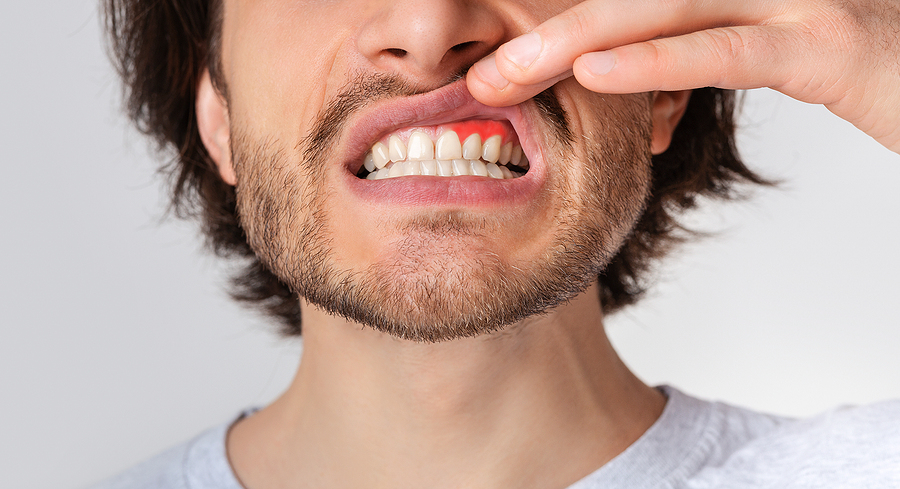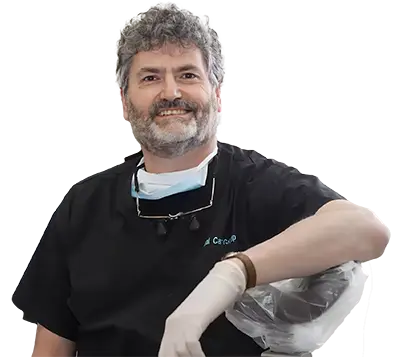How long can you endure gum pain without seeing a dentist?
If you are experiencing tooth sensitivity or a tooth that is in a state of decay or infection, then it is always best to call your dentist in Armadale!
What do receding gums look like?
It is so important to keep your teeth and gums healthy. Doing so will protect your gums from serious diseases that are often characterised in their earliest stages by a red, swollen, and painful gum line.
General tenderness, swelling, redness or a feeling of numbness or “puckering” in one or more areas may be a sign or symptom of gum infection.
So if you are experiencing a sharp pain in your gums whenever you chew this might also be a gum problem (or indeed a tooth problem). It is best to check with your Armadale dentist to investigate the cause of the pain.
Receding gums may be a sign or symptom of a gum problem. Receding gums occur around the soft tissues around the necks of the teeth. The roots may become exposed, which can be the “tip of the iceberg” of a much bigger attachment problem for the tooth.
Tooth sensitivity can be a sign of gum recession. Other symptoms of gum problems can take the form of swelling, redness, bad taste or bad breath, bleeding or even exudate that appears to be “pus-like”.
Healthy gums have a good supply of blood vessels, and are usually pink. Gums should be firmly attached to the jawbone and should completely cover the roots of your teeth.
People with a receding gum problem may experience tooth loss and tissue loss in their gums.
However, gum issues may be present without recession. The extent of the gum problems are best investigated by taking X rays and measuring the gum attachment using special instruments.
The measurements are then recorded and changes whether they are improvements or deterioration can be determined over time.
Will my teeth fall out with receding gums?
When a gum recedes or bony attachment has been lost (or both), the gum and bone along with its connective tissues pull away from the tooth, exposing it to bacteria, which often causes inflammation and ultimately infection.
Once this happens, the condition may lead to tooth loss.
Why are my gums receding so quickly?
There are so many reasons why your gums recede or bony support is lost; that\’s why you need to schedule a regular check-up with your dentist in Armadale to discover what\’s causing your gum problems, and further, to measure this loss or not for comparison and evaluation.
1. Genetics
A person\’s susceptibility to gum disease can be influenced by predisposed genetic make-up. Your genetics are a risk factor in developing this condition.
2. Hormonal changes
Many women in particular go through tremendous hormone changes throughout their lifetimes, including puberty, pregnancy, post-pregnancy and menopause.
Fluctuating hormones can make your gums sensitive and as such, more vulnerable to gum diseases.
3. Periodontal disease
A red, swollen, and painful gum line leads to serious gum diseases such as gingivitis.
Gingivitis can further advance into periodontitis, where tissues, bones and gums are destroyed, resulting in tooth loss.
Periodontal diseases can cause serious illnesses including diabetes, cancer, and Alzheimers.
People with these conditions are at a high risk of developing other diseases due to complications that require other medical treatments.
4. Poor oral hygiene
Regular brushing and flossing can prevent plaque build-up that can lead to gum disease.
Without regular dental cleaning and check-ups, plaque can further progress into tartar, a hardened form of plaque.
Plaque affects the gums and bones surrounding your teeth, leading to serious gum diseases.
5. Misaligned teeth
Crooked and misaligned teeth usually put pressure on your gums, causing additional force, especially when you bite. This can cause your gums to recede.
Often misaligned teeth are more difficult to clean, and this can be a factor that leads to gum disease.

How do you fix receding gums?
Our family dentist in Armadale cannot emphasise enough the importance of good oral hygiene.
Regular dental check-ups are crucial in order to spot infections or concerns at their earliest stages. That\’s why if you notice early signs of inflamed or infected gums, or are suffering from sore and swollen gums, you should contact your dentist right away.
How do you stop receding gums from getting worse?
Prioritising healthy gums and practising good oral hygiene is the best way to avoid any form of gum disease.
1. Proper brushing and flossing
The basic yet necessary oral care is proper brushing and flossing. This helps to constantly brush away any plaque and tartar build-up.
How do you brush receding gums?
When brushing a receding gum, don\’t brush too hard, especially if you\’re trying to eliminate plaque.
You will need to apply gentle pressure on gums with short motions to reduce any friction on the gums.
2. Avoid smoking
Reduce the chance of gingivitis and other periodontal diseases by quitting smoking for good. Smoking increases the risk of plaque that leads to various gum infections.
3. Eat a well-balanced diet
Eating nutritious food, especially those rich in vitamin C and calcium, keeps your teeth and gums healthy.
Make sure that you eat a well-balanced diet that is low in sugar and high in vitamins.
4. Visit a dentist regularly
Keep your teeth and gums in check by scheduling a regular visit to your dentist to detect any early signs of gingivitis and other periodontal diseases. Oral health professionals are experts in giving effective dental hygienist procedures that promote strong and healthy gums.
Emergency dentist for receding gums
Call your after-hours dentist in Armadale today!
Regular brushing and flossing are not enough to take care of your teeth and gums.
Book a visit with your Armadale dentistry that can help you prevent any tooth and gum infections. Remember, your dentist will be able to detect any inflamed and infected gums before you can.
Book an appointment at our Armadale dental clinic today or call us on (03) 9509 1500 to hear our full range of emergency, cosmetic, restorative, and general dental treatments for you and your family.

